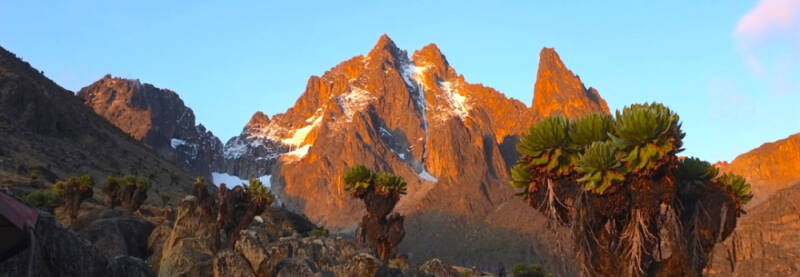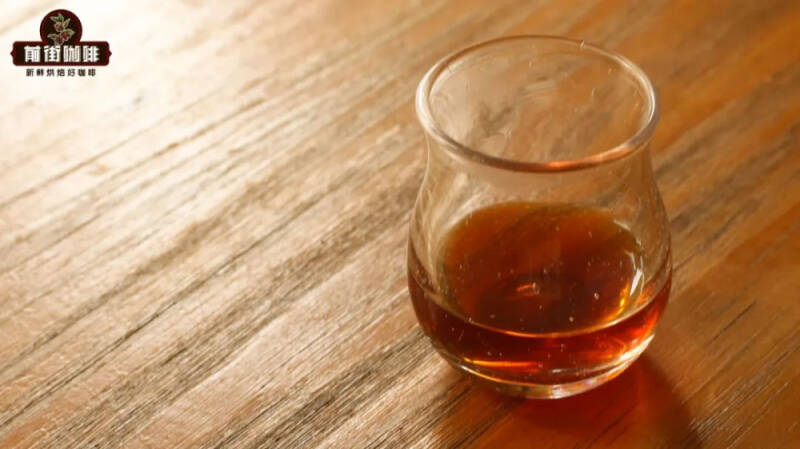Why is the coffee produced in Kenyan coffee producing areas so sour? Still so many people like it?
The coffee in each producing area will have the flavor characteristics of each producing area, but in many cases, these features will have a similar feeling. When it comes to citrus and white flowers, the coffee that people think of is not necessarily from Panama, but also from Ethiopia; when it comes to orange flavor, people will think of Guatemala and Costa Rica at the same time; when it comes to nuts and chocolate, there are Brazil and Indonesia to choose from. Only when it comes to Wumei and Little Tomato, everyone is bound to think of Kenya in the first place!

It can be said that the characteristic flavor of Kenya is completely unique: famous sour! Although it's sour, no one doesn't like it. ). Because, although its sour taste is strong, but soft, and not only sour, the aroma is also very rich. People have a unified understanding of the performance of Kenyan coffee: the rich aroma of black plum, the sweet and sour taste of baby tomatoes, and the sweetness of sugarcane!

If a cup of coffee should be judged by its sour quality, Kenyan coffee can definitely exist as a top student. Behind this unique flavor, Kenya's altitude, geology, latitude, handling methods and varieties are closely related. Without one of them, Kenyan coffee will not be able to reach the height described today!
Elevation, geology and latitude Kenya happens to be located in the area of the "world coffee gold growing belt", which belongs to the tropical producing area. Kenyan coffee beans are mainly grown in volcanic areas from the capital Nairobi to the mountains of Kenya at an altitude of 1600 to 2100 meters above sea level.
Its volcanic soil is extremely rich in phosphoric acid, which can help coffee grow better and give coffee brighter and more lively acidity! It can be said that the acidity of Kenyan coffee is partly due to the phosphate-rich volcanic soil!
Variety is followed by variety! Soil alone is useless. Kenya has introduced Bourbon and Blue Mountain iron cards from Bourbon Island, which sounds great, but unfortunately, they are not the "creators" of these well-known flavors. The two varieties that really created the Kenyan legend are SL28 and SL34 from Scott Lab.
In order to obtain more high-quality coffee varieties, Scott's laboratory searched for 42 different varieties to breed beans for more than a decade. Then, among these 42 varieties, SL28 and 34 stand out and become the capable players to carry the banner of Kenyan coffee in the future. SL is an acronym from Scott's laboratory "Scott Laborotary", while 28 and 34 are the numbers of bean seeds in the experimental batch. We can easily tell them from the appearance. The SL28 bean body is round, while the SL34 bean body is long and oval. After the disassembly study of experts, it is found that one is a variety of bourbon and the other is a variety of iron pickup.
The characteristic washing of Kenya! Washed beans usually have bright acidity, the reason is that the wet fermentation is semi-aerobic fermentation, and semi-aerobic fermentation will decompose the sugar in coffee beans and produce more organic acids. so washed beans will drink with higher acidity! Generally speaking, the fermentation time will not exceed 36 hours! However, Kenya is different from neighboring countries in that its coffee is washed and fermented for 72 hours.
But this is not a single soaking fermentation, but is divided into three rounds, each round of 24 hours, each round of fermentation will be replaced with fresh water for re-soaking, until 72 hours of fermentation before sending the coffee beans to the next step! Therefore, this unique washing treatment is called Kenyan 72-hour fermentation washing, or K72 for short. Because it takes twice or more time to ferment than others, Kenyan beans will have more acidity! It is worth mentioning that the drying process in the treatment is also very exquisite! Kenyan farmers do not spread coffee beans casually on any flat ground to dry, because it is easy to breed a "wild" flavor.
They dry the beans on a special steel plate, which is in a state of stagnation, away from the ground, so that coffee beans do not easily absorb dust and ash on the ground. On the other hand, the steel plate has holes of the same size and spacing, which make the beans more evenly dried and ventilated during the drying process. Without the influence of unstable factors, Kenyan coffee has a cleaner experience, and this specially designed steel plate is also known as the "Kenyan steel bed".
So that's why the quality sour taste of Kenyan coffee is inseparable from every detail. And because of its rich, soft fruit acidity, beans from Kenya were once more popular in shallow baked beans than in Rosa. Very good, wrote drool to stay, the front street to open the bean can, make a pot to drink ~
-END-
Front Street Cafe
No. 10 Baoqian street, Yandun road, Dongshankou, Yuexiu district, Guangzhou, Guangdong province
Important Notice :
前街咖啡 FrontStreet Coffee has moved to new addredd:
FrontStreet Coffee Address: 315,Donghua East Road,GuangZhou
Tel:020 38364473
- Prev

Is it reasonable to ask for a remake when the coffee is not good?
Buy a cup of coffee, get it and find it doesn't taste good. Will you give feedback to the barista and ask for a redo? This is a problem that many people will hesitate to wrestle with. Some people will bravely put forward their opinions and demands, and some people will hold it in their hearts and think that it is just a cup of coffee.
- Next

Arabica has a Vancouver latte, but Vancouver doesn't.
The official account of coffee brand% Arabica recently tweeted that it will launch a new winter limited coffee, the Vancouver latte (Vancouver Latte), in stores across the country on December 14. The brand has also launched theme stores in six cities across the country, which can be obtained to complete the specified task.
Related
- What grade does Jamaica Blue Mountain No. 1 coffee belong to and how to drink it better? What is the highest grade of Blue Mountain coffee for coffee aristocrats?
- What are the flavor characteristics of the world-famous coffee Blue Mountain No. 1 Golden Mantelin? What are the characteristics of deep-roasted bitter coffee?
- Can I make coffee a second time in an Italian hand-brewed mocha pot? Why can't coffee be brewed several times like tea leaves?
- Hand-brewed coffee flows with a knife and a tornado. How to brew it? What is the proportion of grinding water and water temperature divided into?
- What is the difference between Indonesian Sumatra Mantinin coffee and gold Mantinin? How to distinguish between real and fake golden Mantelin coffee?
- What does bypass mean in coffee? Why can hand-brewed coffee and water make it better?
- Unexpected! Ruixing Telunsu lattes use a smoothie machine to foam milk?!
- % Arabia's first store in Henan opens into the village?! Netizen: Thought it was P's
- Does an authentic standard mocha coffee recipe use chocolate sauce or powder? Mocha Latte/Dirty Coffee/Salty Mocha Coffee Recipe Share!
- What is the difference between Vietnam egg coffee and Norway egg coffee? Hand-brewed single product coffee filter paper filter cloth filter flat solution!

